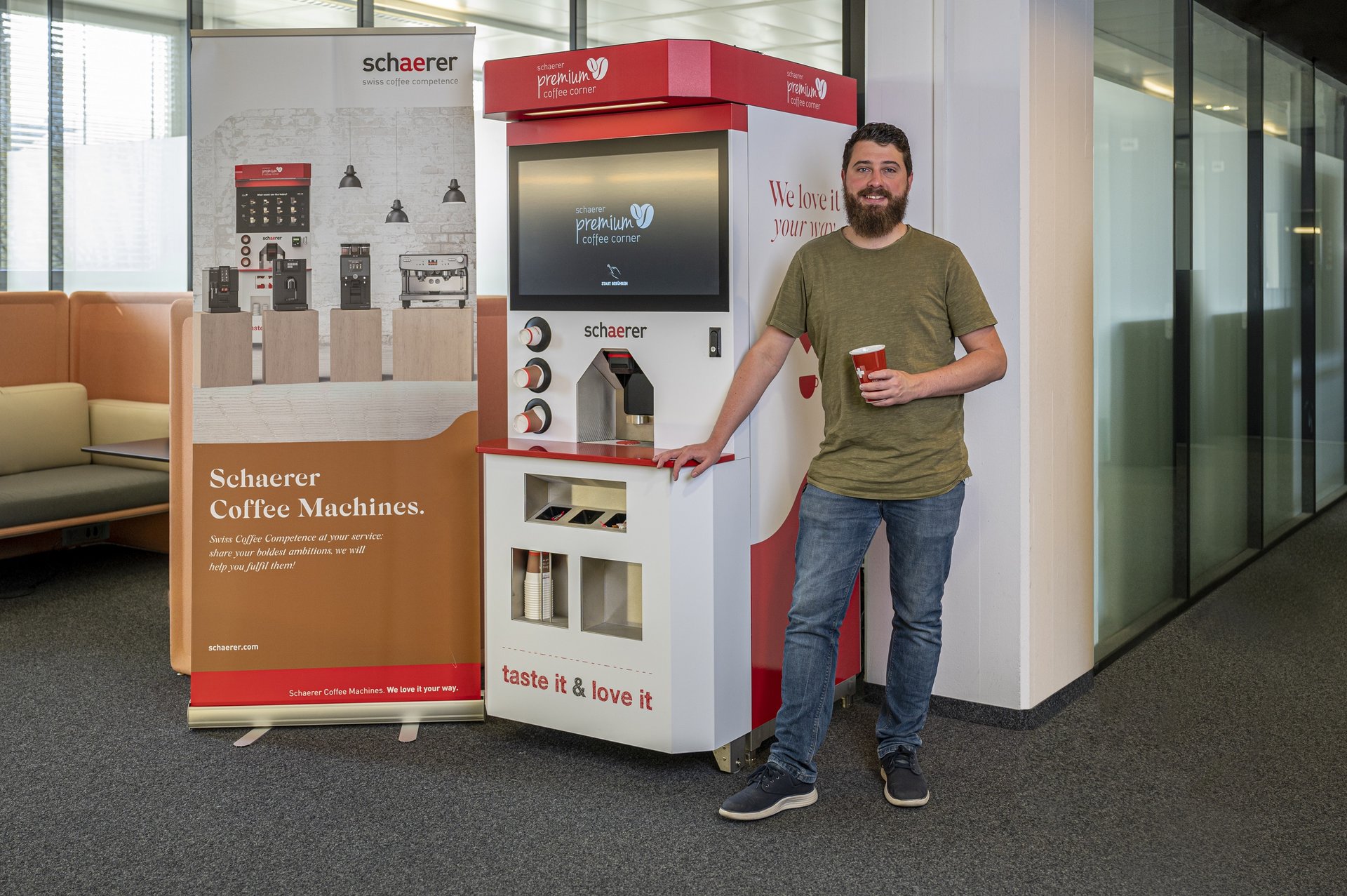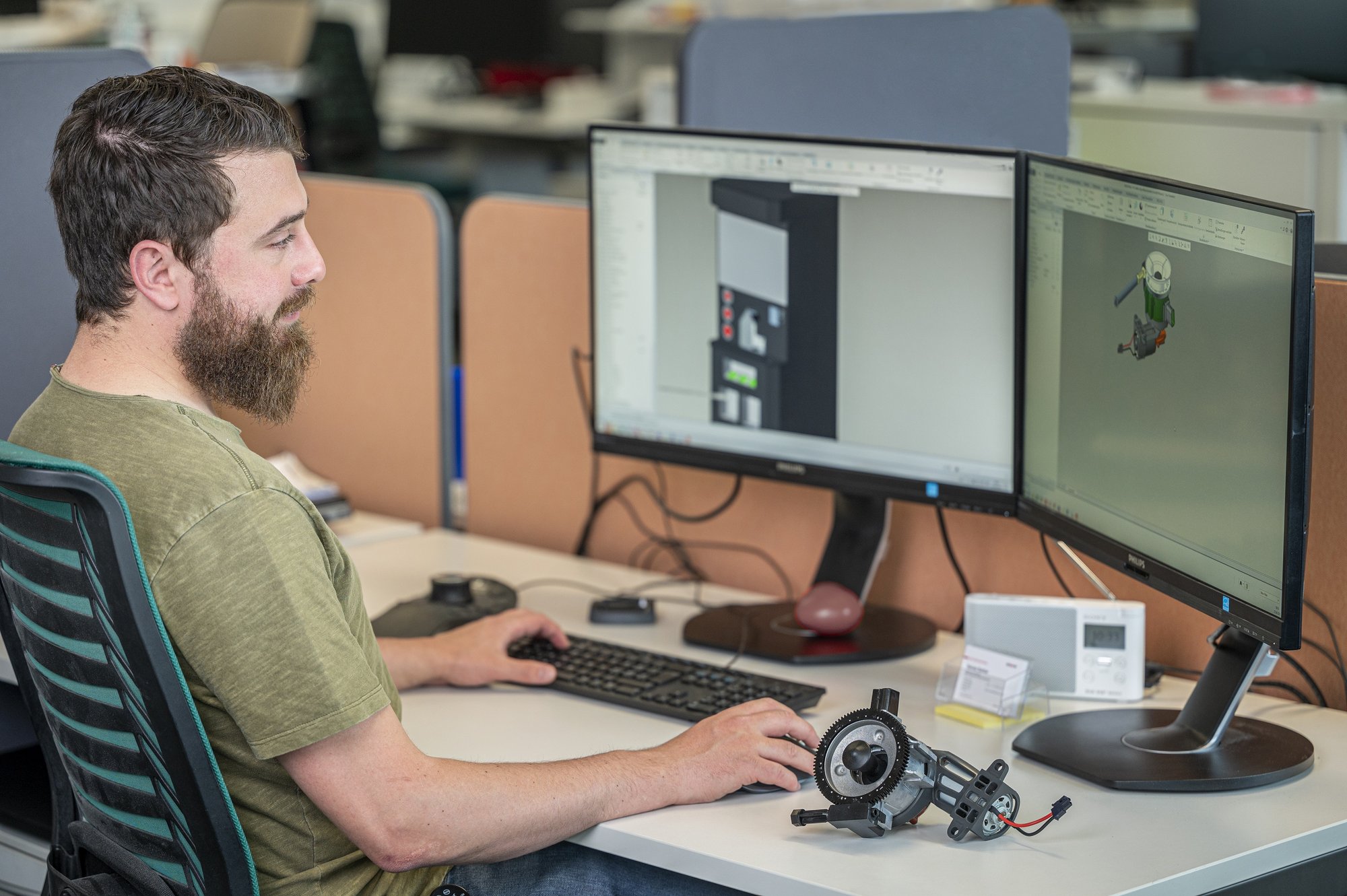Precision is a virtue
What is actually so Swiss about Schaerer?
Schaerer coffee machines have always stood for typical Swiss values: Reliability, precision and the love of detail. At the same time, the brand message "We love it your way" promises a high level of flexibility and adaptability. Bringing these values together in a unified strategy is a challenge for all employees and departments. How can this be achieved in specific terms? What special tasks and requirements does the company have to deal with? And what exactly does "Swissness" mean in the different areas? We would like to answer these questions with our short "What is actually so Swiss about Schaerer?" series in our coffee blog. To kick things off, Hannes Stettler, Mechanical Engineer at Schaerer AG, explains what matters when designing a new machine — and why Swiss perfectionism is crucial for coffee quality.
Let's start with the basics: What do you and your department do at Schaerer? What are you responsible for, what do you do on a daily basis?
I have been working in mechanical development at Schaerer for two and a half years. In simplified terms, you could say: My department is responsible for all parts of the machine that move. Among others, these are the grinder, the brewer and the milk system. It also includes the electrical development, software development and testing departments. Together we make sure that every new or advanced machine meets customer requirements and functions optimally.
When we get the order to develop a new machine, we first define what it should be able to do. We then decide which modules and components we need based on this. Since the machine housing is usually designed in collaboration with an outside design firm, it's then a matter of figuring out how to fit all the components inside. This means a lot of sketching, first by hand, then later with CAD (computer-aided design) programs. The sketches and models are then refined with the involvement of all parties, for example in workshops, until everything meets the requirements. After about a year, the first prototypes can finally be built.
Does "Swissness" play a big role in this process? What about your work is "typically Swiss"?

What makes Switzerland special for me is that, despite all the different languages and cultural affiliations, there are very clear, common values — reliability and precision, for example, but also a lot of passion for work and attention to detail. This is clearly reflected at Schaerer. All our employees give their best so that we can offer our customers a high-quality product.
Of course, this is especially true in mechanical development. You can compare it to the famous Swiss watchmakers. When it comes to our machines, everything must also mesh perfectly and function smoothly. A good example of this are the grinders. To make sure the coffee tastes the same in every machine with the same settings, these must be manufactured with absolute precision. Only when the blades have the ideal spacing, angle and degree of sharpness will the coffee powder turn out exactly as desired. So our perfectionism in the design and manufacture of the grinder has a direct impact on the taste. Of course, this high quality standard also applies to all other components.
We rely on very extensive tests to maintain or even improve this standard. In the testing department, we can observe our new developments for weeks during continuous operation. This is when it becomes absolutely clear where we need to make improvements. On the one hand, these optimisations benefit our customers, who get a long-lasting, consistently high-quality machine. On the other hand, the adjustments also make work easier for our colleagues, for example in production or service. Lastly, I would also name punctuality as a typical Swiss virtue. For us, this means that, above all, we always have an eye on project deadlines.
Are there sometimes major challenges in the development process?
No question about it – for some customers and projects, the requirements are particularly strict. In recent years, for example, we have received very large orders from the Asian market. For this reason, we had to change the machines quite a bit, including adding additional modules for powder and syrup. And we often had tight deadlines. In addition, we had to set up new production lines in order to be able to deliver such large orders on time. All that was not easy. This is where the precise and reliable collaboration between and within our departments really paid off. Even projects of this size and complexity can be mastered with "Swiss virtues".
